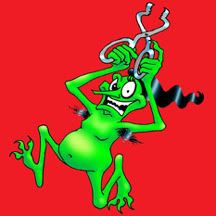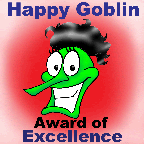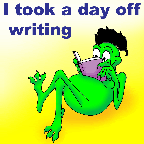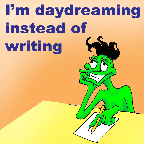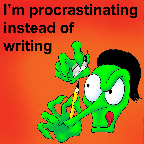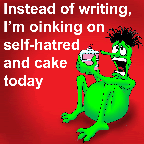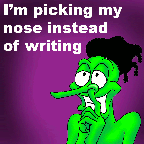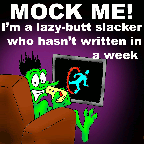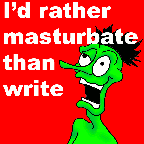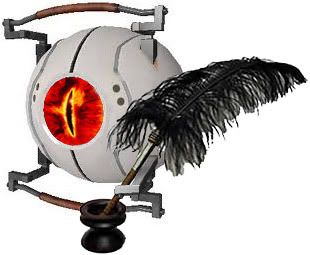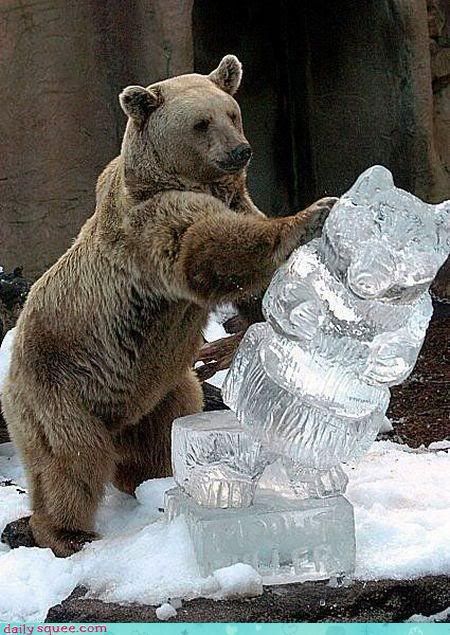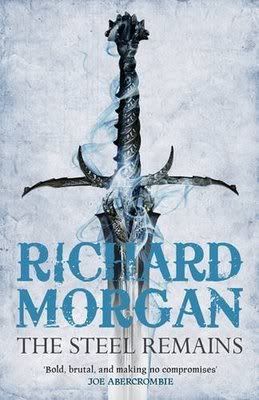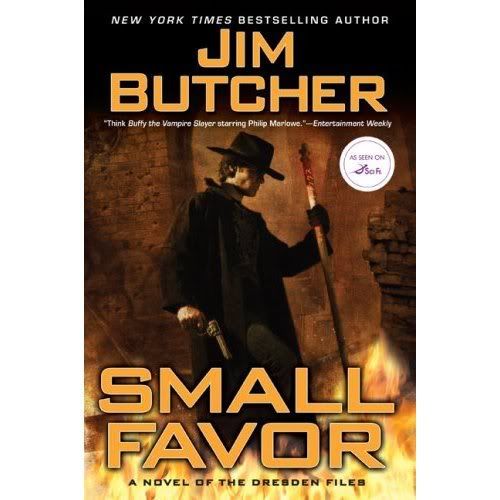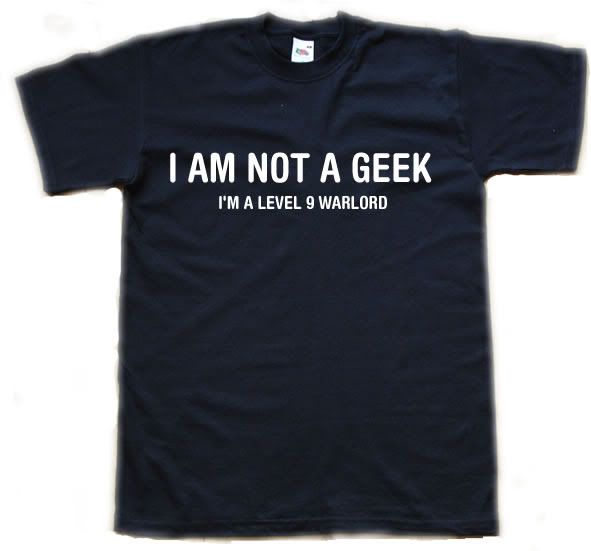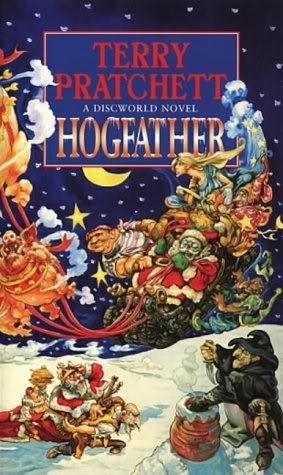I'm dealing with some real life hustle and bustle right now, so I'm cross-posting this query-writing tutorial from The Query Goblin. I hope you enjoy it!Last week, I suggested that when you sit down to draft a query, you want to start by answering the following questions:
- Who is the protagonist?
- What is her situation?
- What kind of world is the novel set in?
The Inciting Incident:
- What is the story's inciting incident? I.e. What sudden change convinces the protagonist she must act?
------- What does the protagonist want?
------- What are the stakes if she fails?
------- What gets in the way of her getting what she wants?
------- What does she choose to do to obtain what she wants? What's her plan?
Escalation:
- What goes wrong with that plan?
- How does that increase the stakes?
- What is her next plan?
- What goes wrong with her next plan?
- How does that increase the stakes again?
- What (very hard thing) must the protagonist do to prevent (a very bad) disaster?
This week, I'll discuss how to craft your query from the answers to the above questions. But first, let me rant and rave and froth about brevity.
You only have about 250 words to spend in your query, so it's critical that you streamline the plot ruthlessly. Yes, your book is full of complex subtleties and lively minor characters, but you must leave all that sparkling awesomeness as a pleasant surprise for the agent/editor who requests pages. It must NOT go in the query.
Why? Because too much detail confuses the reader (badly) and it takes up too much space on the page, regardless.
Here are some tips for keeping your query simple:
- Only discuss the main plot of the novel. All subplots must be omitted.
------- Also, you may need to gloss over the subtleties of your plot, or even mildly misrepresent it, in order to make it sound logical in the query. This is painful, but it's more important for your query to be easy-to-understand than accurate.
- The only descriptions you should include are those the reader needs to know in order to understand the plot. Thus, don't mention that your protagonist is a sexy, thirty-year-old redhead, but if she's going to be forced at gunpoint to perform surgery on the villain, go ahead and describe her as a doctor.
- Keep proper nouns to a minimum. That means names and placenames.
------- Your protagonist should be referred to by name. The love interest and the villain can be named also. Everyone else should be referred to by their function within the story, not their name. For example, say "the priest" rather than "Father Ramchandra".
------- Likewise, omit placenames. However, in fantasy, science fiction, and historical novels, including a placename can help establish what type of novel you've written and what sort of world the protagonist lives in. It's a judgment call; do whatever you think makes the query easiest to understand.
Alright; now, let's get to the business of writing the query!
I've heard it suggested that the query letter should focus on the inciting incident only. This has merit, because the inciting incident is the hook that leads the reader into the story, so it may also be the hook that most efficiently grabs the agent/editor's interest.
That said, I prefer to include more detail about the book than just the inciting incident, and I do so by the method outlined below.
First Paragraph:I start by isolating what the essential conflict in the book's inciting incident is. Then, I try to cram that conflict into the first paragraph. In a sense, I'm using the book's inciting incident as a logline to hook the reader's interest right away.
Remember that the promise of conflict is fiction's most effective lure. It's what keeps people compulsively turning the pages, and so it will also hook an agent/editor into a query.
Now, look back over your answers to these questions:
1) Who is the protagonist?
2) What is her situation?
3) What kind of world is the novel set in?
4) What is the story's inciting incident?
-------4(a) What does the protagonist want?
-------4(b) What are the stakes if she fails?
-------4(c) What gets in the way of her getting what she wants?
-------4(d) What does she choose to do to obtain what she wants? What's her plan?
Answering all of this is our target for the first paragraph, and we only have a few sentences to do it in. The first sentence should answer questions (1) and (4) immediately, and should hopefully establish the conflict between 4(a) and 4(c). If it doesn't, then the second sentence should. Yes, we have to move that fast.
The next sentence should then address 4(b).
So what about (2) and (3)? If possible, they should be
implied as we go along, rather than stated outright.
For example, if your first sentence starts with, "When a wizard flattens Zenestral's pub and threatens to kill her unicorn foal...", that makes it obvious what kind of world the novel is set in and what kind of person Zenestral is. (2) and (3) are now answered (in addition to (1) and (4)) and we were able to focus on the yummy conflict, not the boring background details.
4(d) we can leave for the next paragraph. If you've covered (1)-4(c), you should have a solid and intriguing first paragraph.
After the First Paragraph:In the next paragraphs--and you can have one or several, as you see fit--you're going to focus on the escalation of the story. Recall these questions:
4(d) What's her plan?
5) What goes wrong with/complicates the first plan?
6) How does that increase the stakes?
7) What is the protagonist's next plan?
8) What goes wrong with/complicates it?
9) How does that increase the stakes again?
10) What (very hard thing) must the protagonist do to prevent (a very bad) disaster?
At this stage you should be thinking about the big picture, not the incremental small steps that lead the protagonist onward from the inciting incident. You should get the antagonist (human or otherwise) introduced and explain how his plans
are the obstacles/complications for the protagonist.
You also want to be focusing on
escalation and
the promise that a huge confrontation is coming. The reader should clearly see that life is getting riskier and more difficult for the protagonist.
I find it's a good tactic, in this part of the query letter, to state what the protagonist needs (goal), then immediately mention what gets in her way (obstacle/complication), and then mention the stakes.
So, for example:
"Zenestral knows it's time to flee to yet another new town,[PLAN] but this time she has a son,[COMPLICATION] and if they leave now, the local earth spirit will curse him and doom the boy to the same unlucky life Zenestral has suffered.[STAKES]"
I keep repeating this triplet of goal/obstacle/stakes to flesh out the rest of the plot's escalation, always making sure the stakes continue to rise. As soon as the reader understands the full danger and difficulty of the book's main conflict, then the query ends without giving them any resolution or release of tension. I wrap it up in a final paragraph with the genre and word count, any credentials, and I thank the agent/editor for their consideration.
In other word, the conflict of question (10) is your cliffhanger. You end with the reader wondering what happens next, forcing them to request pages to satisfy their curiosity.

